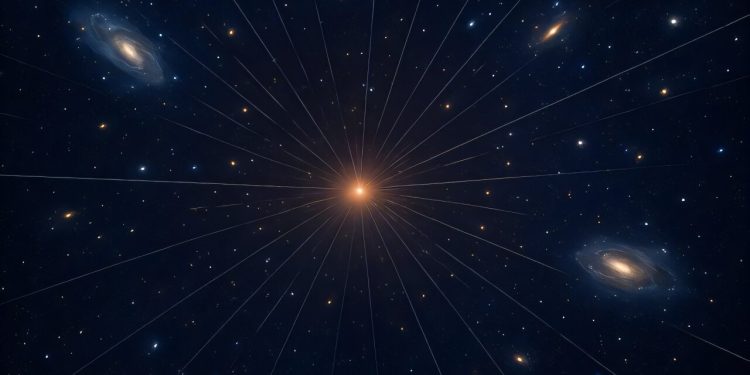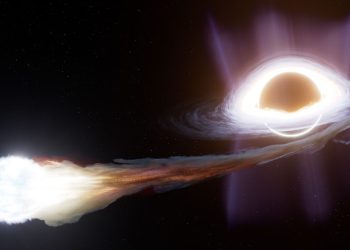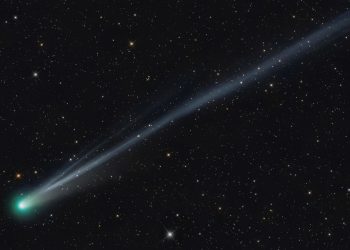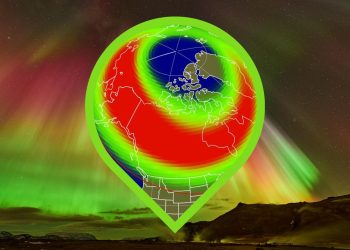by Birgit Kinkeldey, Zentrum für angewandte Raumfahrttechnologie und Mikrogravitation (ZARM)
Expansion of the universe. Credit: Christian Pfeifer (AI-assisted)
Why is the universe expanding at an ever-increasing rate? This is one of the most exciting and unsolved questions in modern physics. Because this question cannot be fully answered using our current physical view of the world, researchers assume the existence of a mysterious “dark energy.” However, its origin remains unclear to this day.
An international research team from the Center for Applied Space Technology and Microgravity (ZARM) at the University of Bremen and the Transylvanian University of Brașov in Romania has come to the conclusion that the expansion of the universe can be explained, at least in part, without dark energy.
In physics, the evolution of the universe has until now been described by the theory of general relativity and the so-called Friedmann equations. However, in order to explain the observed expansion of the universe on this basis, an additional “dark energy term” must be manually added to the equations.
This unsatisfactory solution prompted researchers to take a different approach. Their conclusions, published in the Journal of Cosmology and Astroparticle Physicsare based on an extension of general relativity (GR) by the later developed Finsler model of gravity. Unlike the original GRT explanatory approach, the Finsler model allows more precise modeling of the gravitational force of gases, because it is based on a more general space-time geometry than the GRT.
When the research team calculated the Finsler expansion of the Friedmann equations, they made an exciting discovery: the Finsler-Friedmann equations already predict an accelerated expansion of the universe in a vacuum, without the need to introduce additional assumptions or “dark energy” terms.
“This is an exciting indication that we might be able to explain the accelerated expansion of the universe without dark energy, based on a generalized space-time geometry,” says ZARM physicist and research team member Christian Pfeifer. “The new geometry opens up completely new possibilities for better understanding the laws of nature in the cosmos.”
More information:
Christian Pfeifer et al, From kinetic gases to an exponentially expanding universe – the Finsler-Friedmann equation, Journal of Cosmology and Astroparticle Physics (2025). DOI: 10.1088/1475-7516/2025/10/050. On arXiv (2025). DOI: 10.48550/arxiv.2504.08062
Journal information:
arXiv
Provided by the Zentrum für angewandte Raumfahrttechnologie und Mikrogravitation (ZARM)
Quote: A new attempt to explain the accelerated expansion of the universe (October 15, 2025) retrieved October 16, 2025 from https://phys.org/news/2025-10-expansion-universe.html
This document is subject to copyright. Except for fair use for private study or research purposes, no part may be reproduced without written permission. The content is provided for informational purposes only.









